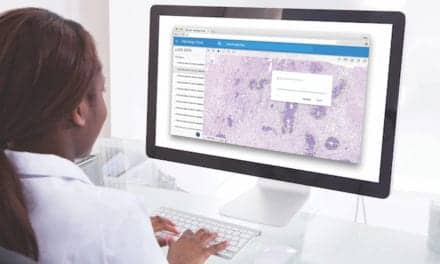Summary: Proscia and Owkin have announced a strategic partnership to integrate AI-driven MSI screening technology, enhancing precision medicine and expanding access to colorectal cancer diagnostics.
Takeaways:
- Innovative AI Integration: Owkin’s MSIntuit CRC v2 will be incorporated into Proscia’s Concentriq software, enabling pathology labs to adopt efficient, AI-enabled MSI testing with 95% sensitivity.
- Impact on Patient Care: The collaboration aims to make MSI screening more accessible, addressing the needs of colorectal cancer patients who can benefit from targeted immunotherapy while avoiding ineffective chemotherapy.
- Pathology Transformation: The partnership accelerates the adoption of digital diagnostics in labs worldwide, combining Proscia’s enterprise platform with Owkin’s AI technology to revolutionize cancer research and clinical treatment.
Proscia and Owkin, an AI-biotech company that uses cutting-edge causal AI to unlock precision drug discovery, development, and diagnostics, announced a strategic partnership to streamline MSI testing for patients with colorectal cancer (CRC), the second most deadly cancer worldwide[1].
Proscia and Owkin Technology for MSI Screening
As a first step in the collaboration, the companies will integrate Owkin’s MSIntuit CRC v2 with Proscia’s Concentriq software platform for studying its impact, and make it available as part of Proscia’s precision medicine AI portfolio to enable laboratories to keep pace with demand for MSI screening.
MSI, a genomic biomarker found in 10-12% of the CRC population[2], plays an important role in managing the disease. Patients expressing MSI can receive immune checkpoint inhibitors and do not benefit from chemotherapy in stage II[3]. This has prompted guidelines for universal screening; however, current techniques, which include immunohistochemistry (IHC) staining, polymerase chain reaction (PCR) testing, and next-generation sequencing (NGS), can be expensive, inaccessible, tissue consuming, and sometimes subject to interpretation.
“While MSI screening helps ensure that each patient receives the best course of treatment, it puts added burden on pathologists and laboratories,” says Thomas Clozel, MD, CEO of Owkin. “We are thrilled to partner with Proscia and execute on our shared vision of harnessing the power of AI to transform medical research and diagnosis.Together, we will expand access to our digital diagnostics for patients globally.”
MSIntuit CRC v2, which will include analysis from biopsy samples, builds upon the success of the CE-IVD-certified MSIntuit CRC, which has a sensitivity of 95% equivalent to standard testing techniques and has demonstrated its ability to rule out almost half of CRC patients from pMMR/MSI testing.[4] Integrating MSIntuit CRC v2 into Concentriq as part of Proscia’s precision medicine AI portfolio could have the potential to expand access to the AI diagnostic in pathology labs. Concentriq is an enterprise pathology platform used by major laboratories for all aspects of their daily operations.
“We are tremendously excited about our partnership with Owkin,” says David West, CEO of Proscia. “Our shared focus on advancing pathology from drug discovery to diagnostics uniquely positions us to unlock the potential of AI on novel therapies and treatment decisions, and our growing base of customers will ensure that breakthroughs are translated into the clinic to benefit patients.”
Further Reading
Accelerating Adoption of AI-Enabled Digital Pathology
Through the collaboration, Owkin has joined the Proscia Ready partner alliance made up of solution providers helping laboratories and life sciences organizations accelerate the scaled adoption of AI-enabled digital pathology with confidence. Owkin and Proscia also lay the foundation for developing and commercializing AI solutions for research and diagnosis that can be added to Proscia’s precision medicine AI portfolio via Concentriq.
*In the US, MSIntuit CRC is under development and currently For Research Use Only. Not for use in diagnostic procedures. In Europe, MSIntuit CRC is under development and will be submitted for CE-IVDR marking.
Photo: Proscia
References:
- Cancer Stat Facts. National Cancer Institute. (2024, October 25). https://seer.cancer.gov/statfacts/html/common.html
- Kang, YJ., O’Haire, S., Franchini, F. et al. A scoping review and meta-analysis on the prevalence of pan-tumour biomarkers (dMMR, MSI, high TMB) in different solid tumours. Sci Rep 12, 20495 (2022). https://doi.org/10.1038/s41598-022-23319-1
- Kawakami H et al. – Microsatellite instability testing and its role in the management of colorectal cancer. – Curr Treat Options Oncol. 2015
- Saillard, C., Dubois, R., Tchita, O. et al. Validation of MSIntuit as an AI-based pre-screening tool for MSI detection from colorectal cancer histology slides. Nat Commun 14, 6695 (2023). https://doi.org/10.1038/s41467-023-42453-6





